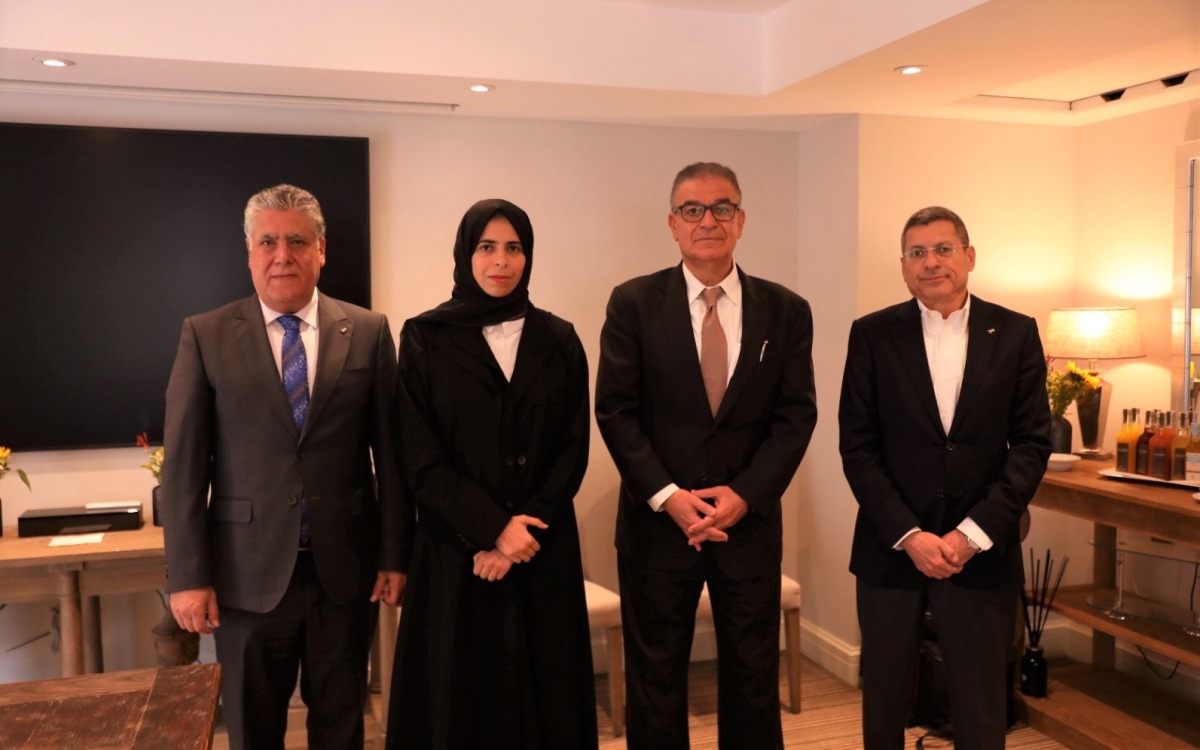Palestinian ministers presented their reform plans aimed at improving economic, social, and relief efforts in both the Gaza Strip and the occupied West Bank.
Qatar has reiterated Doha’s unwavering support for the new Palestinian Authority government, stressing the urgent need for a permanent ceasefire in Gaza.
In a meeting in Brussels on Monday, Lolwah bint Rashid Al Khater, the Minister of State at the Ministry of Foreign Affairs, met with several PA ministers and discussed enhancing cooperation between Qatar and Palestine, focusing particularly on the latest developments in the Gaza Strip and the occupied Palestinian territories.
Al Khater also condemned Israel’s decision to freeze Palestinian funds, which has been in effect since November last year. Since the signing of the 1993 Oslo Accords, Israel collects the tax revenues, estimated at around $188m per month, on behalf of the Palestinian Authority.
The revenues, which earn Israel a commission of three percent, is the main source of income for the PA.
Al Khater further expressed Qatar’s staunch condemnation of the Israeli bombing that targeted tents sheltering displaced Palestinians in the southern city of Rafah.
Israeli forces carried out a massacre in Rafah on Sunday night, killing and burning at least 45 internally displaced Palestinians that were sheltering inside tents.
In the meeting, Al Khater also emphasised the necessity of resuming the political process based on international law, equality, and justice, and stressed the importance of involving the Palestinian people in all future discussions and decisions.
Omar Al Bitar, the Palestinian Minister of Finance, Wael Zakout, the Minister of Planning and International Cooperation, and Basel Nasser, the Minister of State for Relief Affairs, all presented their reform plans aimed at improving economic, social, and relief efforts in both the Gaza Strip and the occupied West Bank.
Separately, the United Nations Security Council (UNSC) is scheduled to meet on Tuesday to address the situation in Rafah following the Sunday massacre.
UN humanitarian chief Martin Griffiths denounced the attack as “utterly unacceptable” and took issue with Israeli Prime Minister Benjamin Netanyahu’s description of the incident as a “tragic mistake.”
“Whether the attack was a war crime or a ‘tragic mistake,’ for the people of Gaza, there is no debate,” Griffiths stated in a release on Monday night. “What happened last night was the latest – and possibly most cruel – abomination. To call it ‘a mistake’ is a message that means nothing for those killed, those grieving, and those trying to save lives.”
Griffiths reiterated that the UN had previously cautioned that a military operation in Rafah would lead to significant casualties, underscoring the lack of safe areas or humanitarian zones in Gaza.
Israel continued its relentless attacks on Rafah, defying an order from the International Court of Justice (ICJ) last week to halt the military operation there.
The crossing, which is the only exit point for many Palestinians, is also the main portal for humanitarian aid and medical evacuations which have been halted due to the Israeli deadly invasion.
Rafah was already densely populated with more than 1.2 million internally displaced Palestinians who were forced to flee northern Gaza at the start of the genocidal war.
Since October 7, Israel has killed more than 36,000 people and decimated the Gaza Strip, creating a catastrophic humanitarian situation.







